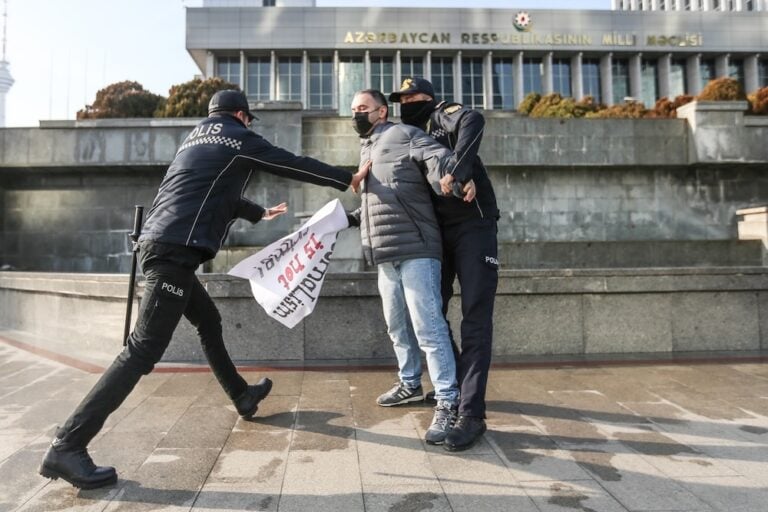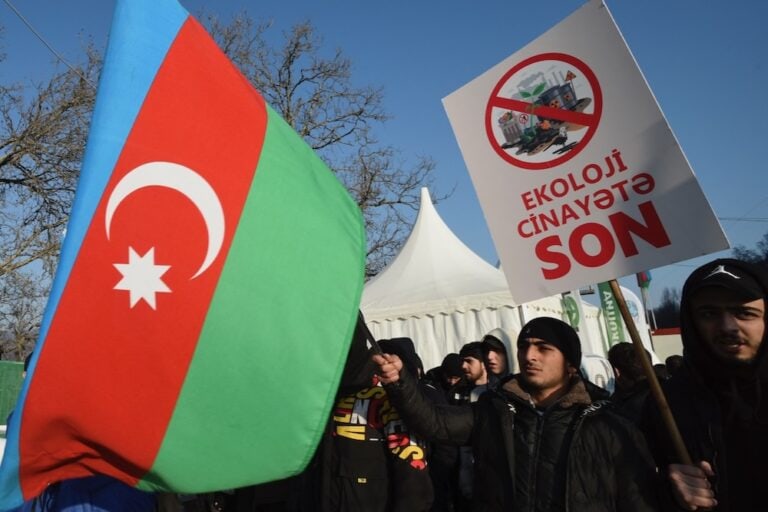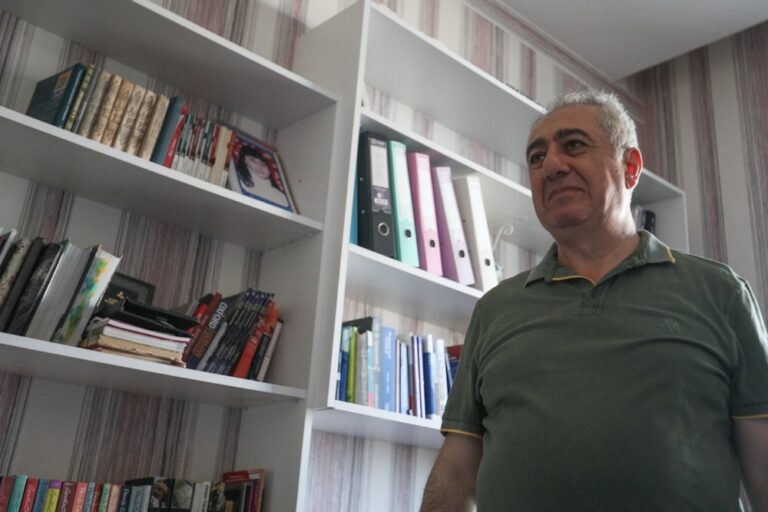Jailings, smear campaigns, trumped-up charges against journalists and unsolved murders: the free expression situation in Azerbaijan
(IRFS/IFEX) – 3 May 2012 – On May 3rd, World Press Freedom Day, the state of freedom of expression is at a critical point in Azerbaijan. The Institute for Reporters’ Freedom and Safety believes that the reason for the deterioration of free expression in Azerbaijan is the sustained and aggressive repression of the media by the government.
In the past year alone, 8 journalists have been arrested under various charges, largely believed to be trumped-up charges. They are: Khural editor-in-chief Avaz Zeynali, Khural correspondent Aydin Janiyev, editor-in-chief of the islamazeri.com website Ramin Bayramov, Iranian Sahar TV correspondent in Baku Anar Bayramli, Sahar TV driver Ramil Dadashov, Khayal TV executive director Vugar Gonagov, Khayal TV correspondent Zaur Guliyev, and the editor-in-chief of Kur-Araz and Transpaerncy magazines Ogtay Gulaliyev.
Nearly 15 journalists were assaulted or injured while performing their professional activities. Last November well-known journalist Rafig Tagi was murdered. The murder of Elmar Huseynov, shot dead on his doorstep in 2005, remains unsolved. Numerous crimes and legal violations against journalists are similarly unresolved. This has given rise to a climate of self-censorship among journalists. Journalists conducting investigations into corruption in the ruling elite face increasingly serious consequences. The party behind the blackmail attempt and secret filming of Radio Liberty correspondent Khadija Ismayilova aimed to put an end to her professional activity.
At present, all TV channels and radios are under state control. Independent monitoring of state TV channels demonstrates that they are broadcasting propaganda material on behalf of the authorities; public TV serves the ruling class, not the people. The owners of most private TV channels are relatives of high-ranking state officials. It is virtually impossible to obtain a license for independent TV-radio broadcasting. The National Television and Radio Council is dependent on the Presidential Administration.
The Azerbaijani authorities have declared that the internet is free in Azerbaijan, but this is not the case. Although the government is not technically filtering internet content, it has arrested social media activists under trumped-up charges. A month ago, two journalists (Khayal TV correspondents Vugar Gonagov and Zaur Guliyev) were arrested for posting a video that prompted protests in the northern city of Guba.
This year, two events that are indirectly connected with press freedom will be held in Azerbaijan: the Eurovision 2012 Song Contest at the end of May, and the Internet Governance Forum at the beginning of November. Despite these opportunities for development, freedom of expression continues to deteriorate.
IRFS calls on the Azerbaijani authorities to address all of the above-mentioned problems, and, most importantly, to release the imprisoned journalists.
Today (on World Press Freedom Day) the IRFS is appealing to the UN, the Council of Europe and OSCE to make calls to Azerbaijan, as a member state which has obligations regarding freedom of expression, and to take appropriate measures if these calls produce no effect.


